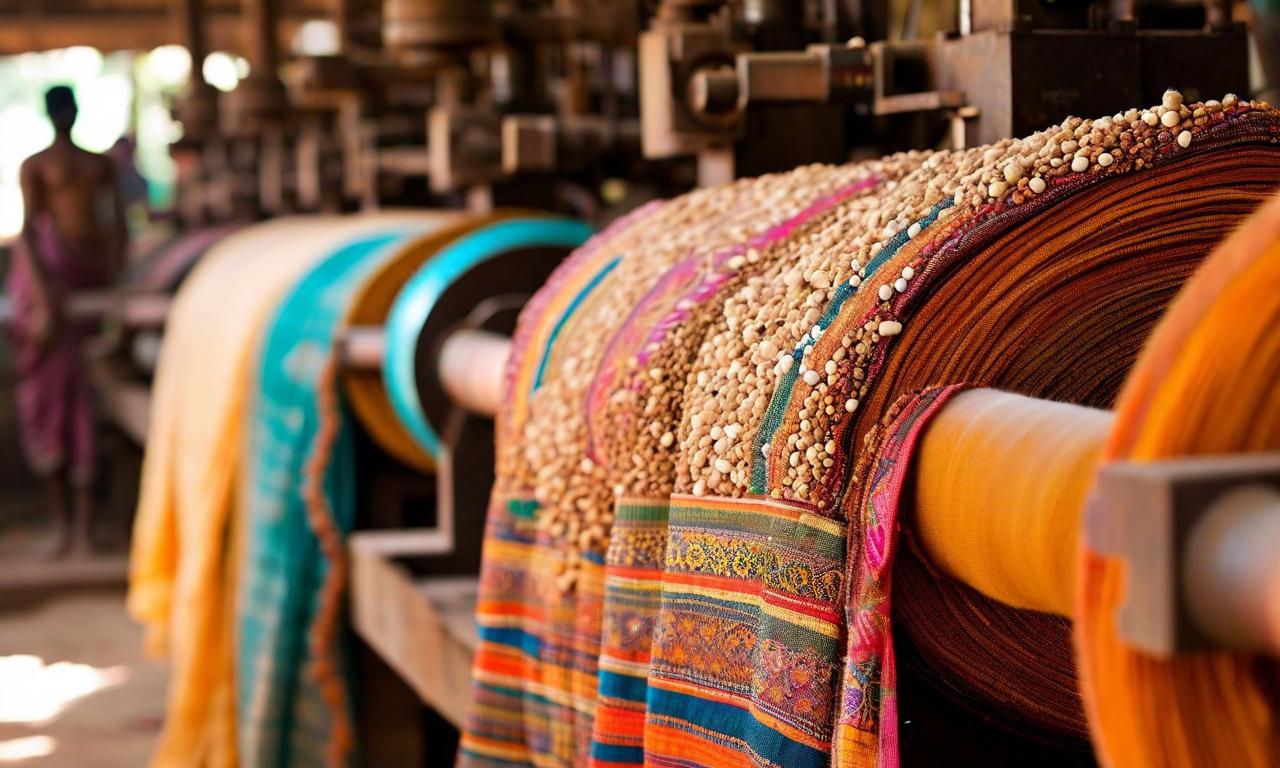Government Plans to Correct Inverted Duty Structure in Textiles and Fertilisers Sectors
The Indian government plans to correct the inverted duty structure in the textiles and fertilisers sectors. This move aims to reduce input costs for domestic manufacturers, potentially enhancing their competitiveness in local and international markets. The change is expected to benefit businesses by improving profit margins and could lead to more competitive pricing for consumers in the long term. This aligns with the government's strategy to support domestic manufacturing and reduce import dependence.

*this image is generated using AI for illustrative purposes only.
The Indian government has announced plans to address the inverted duty structure in the textiles and fertilisers sectors, a move aimed at reducing input cost pressures on companies operating within these industries.
Understanding Inverted Duty Structure
An inverted duty structure occurs when the import duty on finished products is lower than the duty on raw materials or intermediate goods used in their production. This situation can lead to higher costs for domestic manufacturers and potentially make imported finished goods more competitive in the local market.
Impact on Textiles Sector
The textile industry, a significant contributor to India's economy and employment, has long grappled with the challenges posed by the inverted duty structure. The proposed correction is expected to:
- Reduce production costs for domestic textile manufacturers
- Enhance the competitiveness of Indian textiles in both domestic and international markets
- Potentially boost exports and support the government's 'Make in India' initiative
Fertilisers Sector to Benefit
The fertiliser industry, crucial for India's agricultural sector, is also set to gain from this policy change. The correction of the inverted duty structure in this sector could:
- Lower input costs for fertiliser manufacturers
- Potentially reduce the subsidy burden on the government
- Improve the overall efficiency and competitiveness of the domestic fertiliser industry
Implications for Businesses and Consumers
This move by the government is likely to have far-reaching effects:
- For Businesses: Companies in the textiles and fertilisers sectors may see improved profit margins and increased ability to compete with imports.
- For Consumers: While the immediate impact on consumer prices is unclear, in the long term, this could lead to more competitive pricing of domestically produced textiles and potentially lower food prices due to reduced fertiliser costs.
Government's Strategic Approach
The decision to correct the inverted duty structure aligns with the government's broader economic strategy to:
- Support domestic manufacturing
- Reduce dependence on imports
- Enhance the global competitiveness of Indian industries
As the government moves forward with this plan, stakeholders in both sectors will be keenly watching for the specifics of the implementation and its impact on their operations and the broader market dynamics.
























